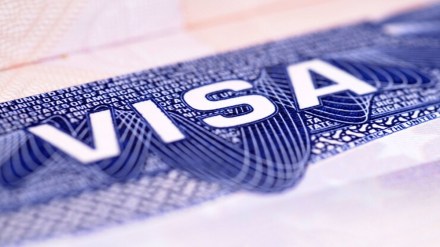The US government on Tuesday announced major reforms in its popular H-1B visa programme, a move that is expected to help thousands of Indian tech professionals.
The new rules will make it easier for American companies to hire foreign workers with special skills. It will facilitate a smoother transition from F-1 student visas to H-1B, a non-immigrant visa that lets US companies hire foreign workers in various occupations requiring advanced knowledge and technical competence.
The norms, to take effect in mid-January 2025, would also ease the visa processing time and streamline the issuance of these documents for skilled workers, students and entrepreneurs.
In the latest overhaul, the Biden administration has re-introduced “prior deference” policy, which was dropped in the previous Trump presidency. The revised regulations give the authority to US Citizenship and Immigration Services (USCIS) officials to defer to previously approved H-1B visas when processing extension requests. In addition, the new rules have changed the definition of “specialty occupation” under which the employers will have clearly demonstrate that the degree field of the applicants is directly linked to the job for which the visa has been sought, thereby reducing the chances of misuse.
For students transitioning from F-1 visas to H-1B, the new rules will automatically provide the extensions to their student visa during the application process. Similarly, for nonprofit and and governmental research organisations, there will be far more flexibility to qualify for cap-exempt H-1B visas since the updated definition classifies research as “fundamental activity” as against the previous ambiguous definition.
Experts said that this is a timely refresher from the US Immigration services which is better aligned to the current skill requirements of the US. “This will further help US strengthen its skilled workforce requirements and create opportunities for qualified skilled workers to apply to H-1B,” said Karunn Kandoi, founder & CEO of Vidysea Education.
The new rules also aim to improve the annual H-1B lottery system by target duplicate registrations which will combat the fraudulent practices and strengthen the integrity of the sought-after H-1B programme. Even though H-1B has an annual cap of 85,000 set by the US Department of Homeland Security (DHS), the total number of H-1B applications for 2025 stood at 479,953 compared to 780,884 in the previous year.
Besides, H-1B beneficiaries with a controlling interest in the petitioning organization will now be eligible for H-1B status with 18 months of visa validity for initial approval and first extension. In addition, the rules have enhanced the USCIS’s Fraud Detection and National Security (FDNS) programme which empowers the agency to conduct worksite inspections, and specifying that the failure to cooperate would result in denial or revocation of the petition.
